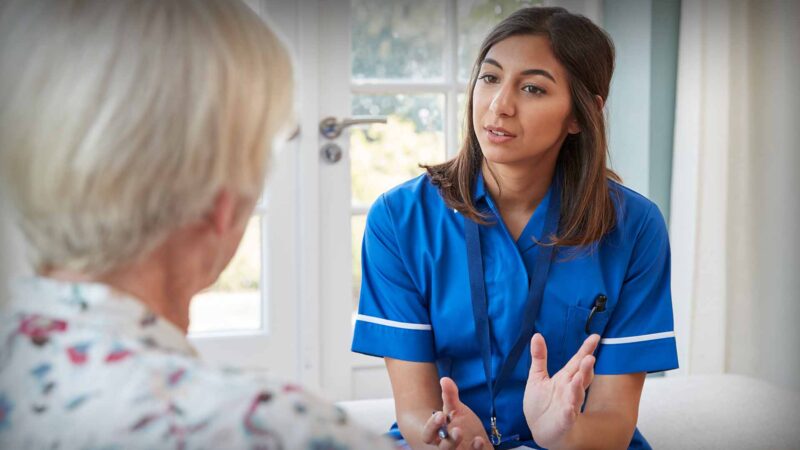A Deloitte study on General Practices in 2019 predicted an increase in unmet medical needs and a decrease in the medical workforce. The study discussed new models of care with interdisciplinary team care including nurse practitioners and community paramedics. Australian Health Journal spoke with the Australasian College of Paramedicine on the role paramedics can play aside from delivering emergency care in transit.
John Bruning is the CEO of the Australasian College of Paramedicine, which has been representing the paramedicine profession in Australia and New Zealand for more than 50 years. According to John, there have been exciting developments in the paramedicine and health fields the past year.
The scope of practice review, as well as the Federal Government’s efforts to improve patient outcomes through multidisciplinary team care, have been particularly noteworthy. While paramedics have traditionally been associated with emergency response and ambulance services, the review has highlighted the potential for them to play a significant role in supporting the healthcare of local communities.
Bruning points out paramedics have the opportunity to play a key role in supporting healthcare and improving patient outcomes. Paramedics should be utilised more widely in urgent care clinics to improve patient outcomes as they are experts in urgent, acute, unplanned care.
Despite being seen primarily as emergency responders, paramedics have long been providing care in the primary care space. As such, their increased involvement in primary and urgent care is a natural progression that can lead to improved health outcomes for communities. Urgent care clinics, which treat non-life-threatening injuries and illnesses, have been a recent introduction. However, when these clinics were initially proposed, paramedics were left out of the opportunity, despite being experts in urgent, acute, unplanned, and unscheduled care. They work in these types of situations every day in the ambulance service and should be utilised in these clinics to improve patient outcomes. Working as part of multidisciplinary teams with doctors and nurses can further enhance the outcomes for local communities.
Discussing with Australian Health Journal, Michelle Murphy, the Advocacy and Government Relations Lead for the Australasian College of Paramedicine, says that having a sustainable health workforce is essential for improving access to healthcare. Paramedicine is currently the fastest-growing health workforce, growing at 9% per annum for the last four years. Urgent care clinics are filling the gap between family or primary care and tertiary or hospital-based care and reducing the pressure on emergency departments and ambulances. Paramedics are well-placed to work in these clinics, delivering ad hoc unplanned clinical care when it is urgent but not an emergency. Multidisciplinary teams improve access to care by enabling communities to think about the health providers they need and bringing together different providers to work together to deliver care in communities.
Murphy references a study involving Associate Professor John Adie at the University of the Sunshine Coast. As Assoc Professor of Urgent Care, Prof Adie talks about the workforce of General Practitioners at the time predicted to decrease by 25% from 2019 to 2023, while the unmet need was expected to increase by 38%. Some countries are adopting new models that involve nurse practitioners and community paramedics as part of the workforce. These practitioners will be able to assist GPs in seeing patients with non-life-threatening urgent conditions.
You Might also like
-
A New Era in Primary Health Care Nursing
Coinciding with this year’s International Nurses Day, this week’s Federal Budget has had some significant outcomes for the primary health care, nursing workforce.
The Federal Budget delivered on 9th May 2023, APNA believes will strengthen Australia’s primary health care (PHC) system by addressing growing nursing shortages, seeing more nurses hired where they are needed, and better utilising the largest workforce in PHC of nearly 100,000 nurses to their full potential to reduce the pressure on the health system.
-
Addressing Wound Management
The cost of chronic wounds in Australia is estimated to be $3 Billion per year, impacting 420,000 Australians. Not only is this a national economic concern, but more importantly, is the suffering the person may be going through.
Australian Health Journal met with Hayley Ryan, Board Director and Chair at Wounds Australia and Director at WoundRescue to hear her work in chronic wound management, palliative wounds and pressure injury prevention to comfort those living with a wound.
-
Building capacity with job-ready clinical trial interns
The Victorian Comprehensive Cancer Centre Alliance, or VCCC Alliance for short, is a Victorian partnership of 10 research, academic and clinical institutions looking at improving cancer outcomes for patients.
The VCCC Alliance SKILLED clinical trial internships program is a pathway for scientists to build role-specific clinical trial knowledge, experience and in a clinical trials unit through theoretical and on-the-job training. The internship program is a 40 week intensive program to get science student interns job ready for clinical trial assistant and study coordinator internship roles.



